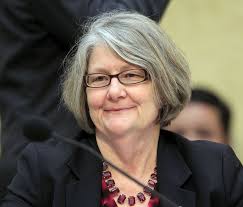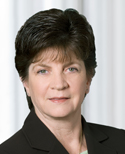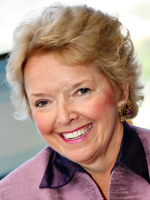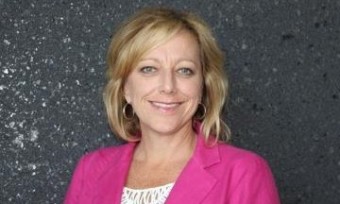Daily Business Report-April 13, 2015
Rendering of planned Ballpark Village development. Courtesy JMI Realty
37-Story Ballpark Village
Could Break Ground This Week
The San Diego City Council today will consider approving a transfer of development rights for a major project adjacent to Petco Park in the East Village, allowing work to start later this week.
JMI Realty, the firm created by former Padres owner John Moores to handle development surrounding the stadium, has proposed selling the rights to build the 37-story Ballpark Village project to Greystar, a real estate management company based in Charleston, South Carolina.
The project, which would break ground later this week if the council approves the transaction, would include 720 apartment units — with some set aside for affordable housing — and 58,000 square feet of retail space. It would be located on 3.9 acres bounded by Park Boulevard, and Imperial and 12th avenues, just east of Petco Park, according to a city staff report.
The transfer is going before the City Council because the original agreements with JMI were made before the redevelopment process was abolished by the state.
The deal includes an Owner Participation Agreement, which has terms specifying the types of uses and affordable housing requirements. The agreement also includes a $4 million contribution to a pedestrian bridge over Harbor Drive, and creating 267 public parking spaces for special events.
Greystar is complying with the agreement, according to city staff.
— City News Service

San Diego’s Innovation Economy
Creates One Startup Company a Day
San Diego’s innovation economy created more than one new company a day last year, adding hundreds of jobs in the process, according to a new study by Connect.
Connect, the San Diego region’s original technology incubator, reported 448 new innovation companies were created in 2014, up from 412 in 2013 and 316 in 2012.
Nearly a quarter of the companies started in 2014 worked with Connect’s Springboard program, which helped the startups raise $102 million in funding.
“We’re so proud that Connect’s Springboard graduate companies continue to grow and succeed in the market,” said Greg McKee, the organization’s chief executive officer. “The incredible success of even our most recent Springboard graduates demonstrates the strength of the start-ups in San Diego.”
Other findings from Connect’s Springboard Impact Assessment Innovation Report, released Friday, were:
• From 2005-2014, $1.2 billion was raised by Connect Springboard company graduates.
• Life sciences companies have received the most funding since 2005, more than $380 million in total.
• Springboard companies reported aggregated revenue of almost $250 million in 2014.
• Since 2005, 18 Springboard companies have been acquired and 261 are still actively in business.
• Since 2005, more than 4,000 new jobs have been created by CONNECT Springboard graduate companies.
Mitch Thrower, founder and chairman of Springboard graduate Events.com, called Connect “an essential ingredient of start-up success. “It warmly welcomes the entrepreneur into the center of the startup ecosystem,” said Thrower. “As a two-time graduate of Connect’s Springboard, I’m a fan. My first Springboard company, Active.com, was sold for more than $1 billion, and therefore it was only natural that we would again work with Connect to build a much bigger company with Events.com.”
— Times of San Diego
Lawsuit Challenges Civic San Diego’s
Role in San Diego City Government
A lawsuit was filed Friday to clarify the relationship between the city of San Diego and Civic San Diego, the quasi-independent agency that handles development issues for the city.
The legal action was filed in San Diego Superior Court on behalf of the San Diego County Building and Construction Trades Council and Murtaza Baxamusa, an advocate for the working poor and Civic San Diego board member.
“Presently, CivicSD operates without accountability to the City Council, and thus without accountability to the taxpayers whose dollars it spends,” Baxamusa said. “Additionally, questions have been raised about potential conflicts of interest between private developers, CivicSD board members and the stewardship of public resources in the best interest of San Diego communities.”
The City Attorney’s Office could not immediately be reached for comment.
Those suing aren’t seeking financial compensation but rather a legal declaration of the duties and responsibilities of the city and the agency in economic and community development, lawyer Steve Coopersmith said.
He said they’re also hoping to get a judge to declare that when public funds are spent on private development, community benefits should result.
If the city delegates permitting and planning to Civic San Diego, then it needs to properly define and oversee the agency’s activities, Coopersmith said.
Civic San Diego was created under former Mayor Jerry Sanders around the time that redevelopment agencies were being abolished by the state a few years ago. The agency assumed many of the responsibilities and projects of the former Centre City Development Corp. and Southeastern Development Corp.
Civic San Diego recently completed a survey of San Diego residents on community benefits they were hoping to see in their neighborhoods from future development projects.
Assemblywoman Lorena Gonzalez has authored a bill that would give the City Council final say on decisions by Civic San Diego. AB 504 would limit the organization’s attempts to expand into neighborhoods like Encanto and City Heights — a priority of Mayor Kevin Faulconer’s — and weaken its role Downtown.
Gonzalez’s office says the organization’s “potential authority to dramatically engineer the future of neighborhoods with little supervision or accountability presents a serious conflict of interest.”
— City News Service
Lawyers Club Stages Equal Pay Day
Leadership Luncheon Downtown

Lawyers Club of San Diego, the specialty bar association promoting the advancement of women in law and society, will host its third annual Equal Pay Day Leadership Luncheon on Tuesday at the U.S. Grant Hotel, the Downtown hotel that once barred women from its Grant Grill restaurant.
Featured speakers at the event are San Diego City Council President Sherri Lightner; Joyce Rowland, Sempra Energy vice president; and Sarah Czarnecki, field representative for Congressman Scott Peters. Each will speak on the topic of pay equity for women.
Equal Pay Day, originated by the National Committee on Pay Equity in 1996, is now called National Equal Pay Day. It is an event that spreads awareness of the pay inequity between men and women. The date symbolizes how far into the new year women must work to earn what men earned in the previous year.


According to the U.S. Census Bureau, women are paid 78 cents for every dollar men earn. The statistics are even more dire for women of color and older women. The Bureau’s American Community Survey reports that Hispanic and Latina women were paid 54 percent of what white men earned in 2013. The U.S. Department of Labor found that from approximately age 35 through retirement, women are typically paid 75 to 80 percent of what men are paid. The Institute for Women’s Policy Research estimates that it will take another 50 years to close the wage gap.
“Equal pay for equal work is something everyone supports, but the statistics demonstrate that even when the figures are adjusted to account for differences (such as occupation and education level) there is still a wage gap,” Lawyers Club President Patricia Hollenbeck said. “Join us as we discuss steps we can all take to spread awareness and combat this issue of pay inequity.”
It was in 1969 that three local female attorneys — Lynn Schenk, Judith McConnel and Elain Alexander — successfully staged a campaign to remove the ban against women in the Grant Grill.
The Equal Pay Day Leadership Luncheon, open to the public, will be at noon. Cost is $30 for members of Lawyers Clbu and $45 for nonmembers. Register in advance is required at www.lawyersclubsandiego.com.
Cal State San Marcos President
Named President of the Year

Karen Haynes, president of Cal State University San Marcos, has been presented the Robert C. Maxson President of the Year Award by the California State Student Association, the organization representing students in the California State University system.
Each year the CSSA recognizes one CSU campus president whose leadership reflects a commitment to the mission of the CSSA, who has demonstrated exceptional inclusion of students within the context of shared governance and has assisted the CSSA in advancing its statewide policy agenda.
“Her student-centered leadership style, willingness to involve students in decision-making, and support for statewide student advocacy efforts made her the standout nominee this year,” said CSSA Chair Devon Graves. “We are particularly grateful for President Haynes’ successful efforts to incorporate and effectively serve former foster youth in the fabric of CSU San Marcos, and the entire CSU system.”
“It is probably the highest honor a president can receive to be recognized in such a meaningful way by students in one’s own university system,” said Haynes. “With a strong commitment to the mission of our system and its students, I am proud to have instilled a culture of leadership across our university reflecting fairness, openness, honest communication, integrity and diversity.”
Cal State San Marcos Receives $2.5 Million
From Governor for Innovation Efforts
California State University San Marcos has been awarded $2.5 million by Gov. Jerry Brown in recognition of innovative efforts to serve first-year undergraduate students, particularly the most at-risk, on their pathway to a college degree.
Of the 58 public colleges and universities that applied for the Awards for Innovation in Higher Education, only 14 of the highest scoring candidates were selected to share in the one-time $50 million from the state general fund.
CSUSM’s application received high marks in particular for its strong focus on first-year remediation and retention. While many students arrive at CSUSM underprepared for college-level courses, the university’s First Year Program has found success with summer programs, first-year courses and learning communities that strengthen students’ academic and life skills.
Personnel Announcements
Qualcomm Promotes Michelle Sterling

Michelle Sterling has been promoted to vice president of human resources for Qualcomm Inc., succeeding Dan Sullivan, who is retiring after 23 years with the company. Sterling will assume the new post on May 4.
Sterling joined Qualcomm in 1994 and throughout her tenure has provided HR leadership, strategy and support to nearly all areas of the company, including manufacturing, corporate functions and business divisions, as well as new and emerging businesses.
During this time, she also has worked on complex business transactions including acquisitions, joint ventures and divestitures. In her current role, Sterling oversees HR Operations, International HR, Global Inclusion & Diversity, Employee Relations, HR Systems and Talent Analytics. Sterling holds a bachelor’s degree in business management from the University of Redlands, is a recipient of the TWIN (Tribute to Women and Industry) award and is currently the chair of the board of directors for Serving Seniors.
Sullivan has led Qualcomm’s HR organization since joining Qualcomm in 1992, and has served as executive vice president for more than 13 years.



